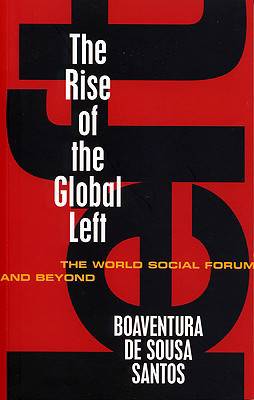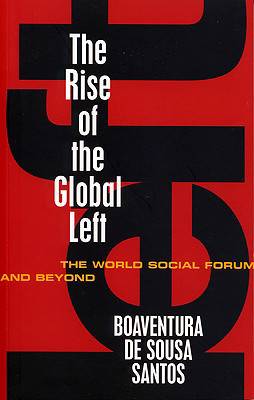
- Retrait gratuit dans votre magasin Club
- 7.000.000 titres dans notre catalogue
- Payer en toute sécurité
- Toujours un magasin près de chez vous
- Retrait gratuit dans votre magasin Club
- 7.000.000 titres dans notre catalogue
- Payer en toute sécurité
- Toujours un magasin près de chez vous
The Rise of the Global Left
The World Social Forum and Beyond
Boaventura De Sousa Santos
Livre relié | Anglais
104,95 €
+ 209 points
Format
Description
Leading sociologist Boaventura de Sousa Santos makes an impassioned case for the politicisation of the World Social Forum, arguing that its full potential as a force for social, economic and political change can be achieved only by taking a stand against neo-liberal globalization, war, famine and corruption. However, since its inception in Porto Alegre in 2001, the World Social Forum has refused to adopt political positions on world events, preferring instead to provide a platform that facilitates cooperation between diverse social movements.
Through a detailed analysis of the WSF's history and organization, he demonstrates that it has always been an inherently political organization, and argues that if the WSF is able to realise its potential as an institution for a new form of politics, it will become a global power to be reckoned with in the 21st century.Spécifications
Parties prenantes
- Auteur(s) :
- Editeur:
Contenu
- Nombre de pages :
- 222
- Langue:
- Anglais
Caractéristiques
- EAN:
- 9781842778005
- Date de parution :
- 01-12-06
- Format:
- Livre relié
- Format numérique:
- Genaaid
- Dimensions :
- 166 mm x 217 mm
- Poids :
- 403 g







